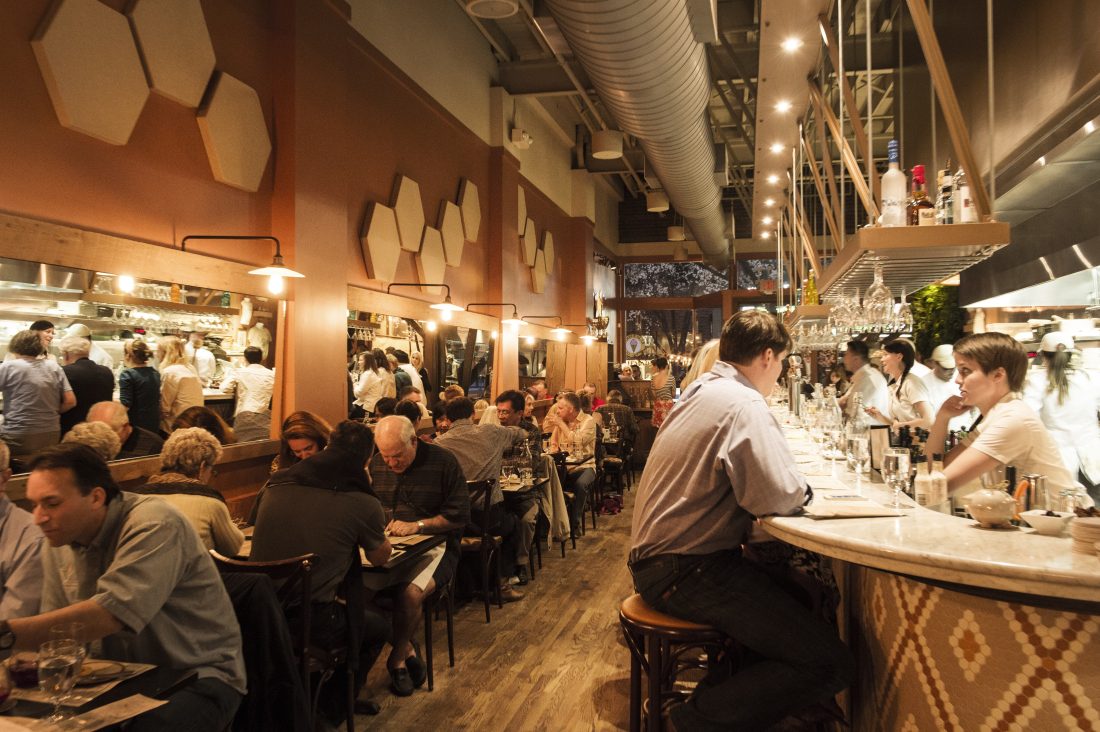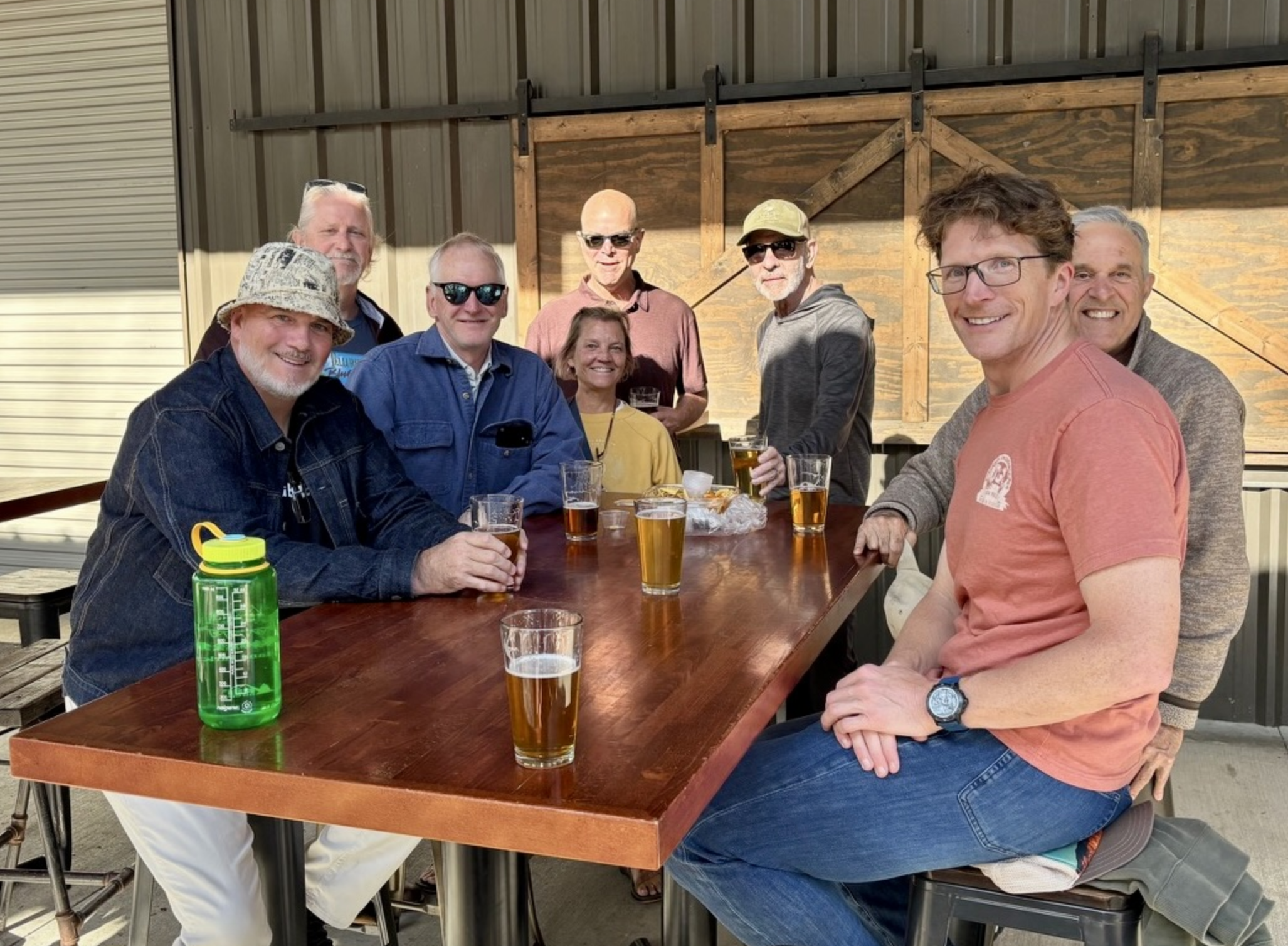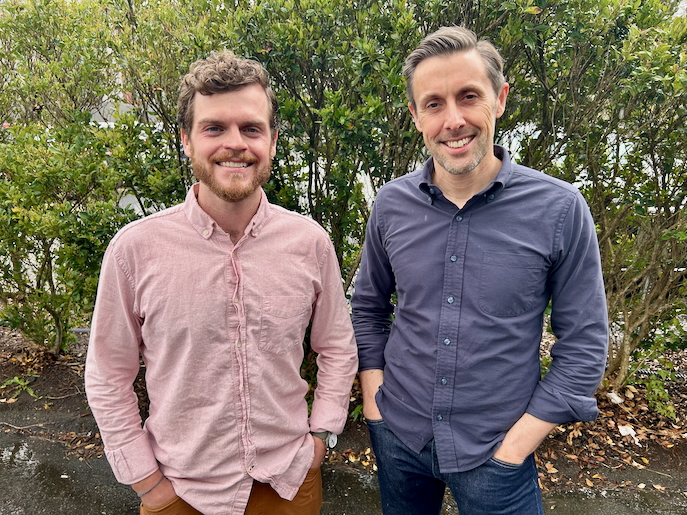At Vinnie’s Neighborhood Italian on Merrimon Avenue, the usual bustling crowds were nowhere to be found in October and November. With tourism gone and local spending tight after Tropical Storm Helene, owner Eric Scheffer knew he had to act quickly.
“We used everything we’d learned over 25 years in this business,” says Scheffer, who owns and operates two Vinnie’s locations, along with Jettie Rae’s Oyster House and Gan Shan West. “Analytics, scenarios, models — figuring out how to survive when the flow of customers stopped.”
Scheffer’s restaurants made several changes, including adapting menus to offer more affordable and familiar options to encourage business. Staying connected with local customers to understand their needs was also a key focus.
“Coming out of the hurricane, a lot of people were shell-shocked, obviously,” he says. “So we tried to be very mindful of our customers’ needs. I was just listening to what they wanted, which included menus they were familiar with. Like at both Vinnie’s, we went down to a very limited menu that was all the top 10 greatest hits.”
The storm’s financial toll was steep for Scheffer. Revenue at his four restaurants was down about $800,000 from what it normally would have been in October and early November. After that, business was down about 16%, he estimates.
But adequate reserves allowed his restaurants to survive. Seven months later, while tourism hasn’t returned to prestorm levels, his four restaurants have found stability and are adjusting to the new normal, he says. The four locations have about 95% of the staffing they had pre-Helene.
Other local restaurants faced similar challenges, all while relying on loyal local customers for support during the worst of the post-Helene downturn.
Many restaurants weren’t so lucky, opting to close for good after the storm. “I’ve talked to a lot of restaurateurs that have gone out of business, and it breaks my heart,” Scheffer says. “It’s terrible, it’s horrible, but they don’t have the means or the financing to come back.”
Xpress talked to three Asheville restaurateurs about how they survived the aftermath of Helene, what lessons they learned and what comes next.
‘Head above water’
“After the storm, the first thing was a sense of urgency to help the community,” says Felix Meana, who co-owns Biltmore Avenue’s Cúrate along with his wife, Katie Button. The restaurant quickly partnered with World Central Kitchen to provide meals for those in need.
“In 48 hours, we were already operating, supporting people who had no access to food,” he explains. By mid-October, the restaurant had reopened for dinner with a limited menu.
Before long, though, Meana and Button had to start thinking about long-term survival of the James Beard Foundation Award-winning Cúrate, which serves traditional Spanish tapas. In February, they decided to close its sister restaurant, La Bodega, which never reopened after the storm. Instead, they’ll use the space on Lexington Avenue for private bookings and special dining events.
“That was probably the biggest economic impact from the storm because we’re losing part of our business,” Meana explains. “But we’re putting in the effort to get the word out about our events space.”
In addition, Meana and Button have focused on the restaurant’s e-commerce line, which sells items like charcuterie, olive oil and knives, as a way to bring in additional money. Products that were sold only online are now displayed in a retail corner of the restaurant.
“We’ve been very creative, trying to do as much as possible to keep busy,” he notes.
Support from locals has played a crucial role in the recovery. “The local community was there for us. They were happy to find a seat,” Meana said. While tourism has not yet returned to prestorm levels, local customers helped stabilize the restaurant during the initial reopening.
Despite challenges like inconsistent business and a labor shortage, Meana remains optimistic. “Week by week, we’re seeing improvement,” he says, though sales are still down 25%-30% compared with last year. His restaurant also has had difficulty finding staff, with many workers leaving the area or switching industries after Helene.
Looking ahead, Meana is hopeful for a busier spring and summer. “We’re in a good moment now, and I think we’re going to see a big turnaround. We’re keeping our head above water and hoping for a better year.”
‘Locals sustain us’
Rajdeep Manaise, owner of Mëhfil’s in downtown Asheville, says his restaurant faced challenges in the aftermath of Helene but was luckier than many establishments. For one thing, the building on Biltmore Avenue never lost power.
“When the storm hit, downtown restaurants were some of the few still open,” Manaise recalls. “For the first few days, we were very busy because there was no one else.”
As tourism came to an abrupt halt — and sales dropped by half by November — locals rallied around the restaurant, which serves Indian fare. “Tourism does help, but it’s not the key,” Manaise says. “The locals are what sustain us through the offseason.”
Communication with customers also became crucial. For the first few days, word of mouth brought people in, but as time passed, Manaise used social media and email to keep customers informed about the restaurant’s status. “We just kept the menu limited and opened regular hours,” Manaise says.
Manaise remained committed to keeping his staff employed. “We had to cut down everyone’s hours, but we kept everyone working. We rotated staff so that they could still get some hours, allowing them to pay their bills,” he explains.
Looking to the future, Manaise is optimistic. He took over the restaurant at Skylaranna Resort and Spa in Hendersonville in March, renaming it Mëhfil at Skylaranna. The expansion gives him a new revenue stream and additional opportunities to keep his staff employed and working regular hours.
‘Cautiously optimistic’
Vinnie’s owner Scheffer credits some of his restaurants’ survival to early intervention from World Central Kitchen. His large staff and multiple kitchen facilities helped the nonprofit feed the community, keeping about 70% of his employees on payroll.
In addition, Scheffer ensured that employees who couldn’t return to work received daily meals, helping sustain them during the crisis.
Once the immediate crisis of the storm passed, Scheffer’s team worked with local plumbers and a water company to supply potable water to his restaurants when Asheville didn’t have any. “We could actually get up and running once we were done with the World Central Kitchen commitment,” he explains.
Scheffer’s savings played a crucial role in helping him weather the financial strain caused by Helene. “I’ve been smart, I’ve learned to put money away to prepare for sh*t like this,” he says. “The month of October, with my four locations being down, it was a significant hit to our bank accounts. It wiped out a lot of money that we had saved, but we were able to survive.”
Many businesses didn’t have adequate reserves to get through the financial crisis Helene brought on, he points out.
While food costs are stabilizing, the lingering labor shortage, which began during the COVID-19 pandemic, continues to stress local restaurants, Scheffer says. “That’s one thing I’ve heard a lot. People who work in the restaurant industry were put out of work by the storm, so they had to go to some other city and a lot of them just aren’t going to come back.”
As the months passed, Scheffer started to see a return to normalcy with local patrons. But tourism has remained down, which was especially noticeable at Jettie Rae’s and at the original Vinnie’s Neighborhood Italian on Merrimon Avenue. His other two restaurants are less tourist-dependent, he says.
“I am cautiously optimistic. I have a gut feeling about this,” he says. “I think it’s going to take probably a solid year for us to really get back on our feet here in Asheville. But I do anticipate some level of tourism coming back here this season.”







